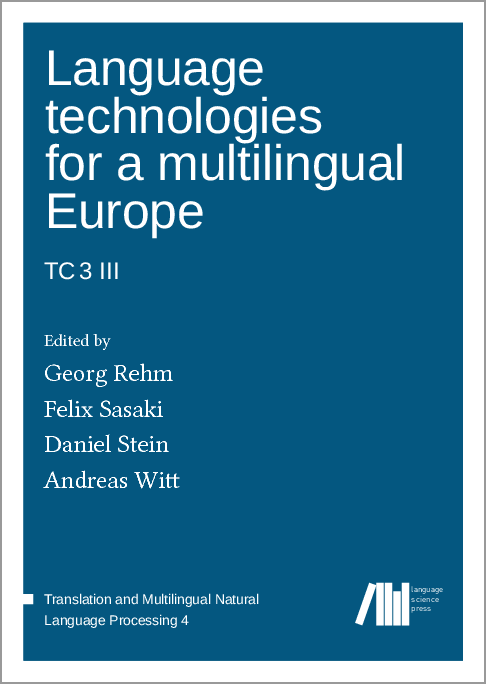We log anonymous usage statistics. Please read the privacy information for details.
Language technologies for a multilingual Europe
Synopsis
This volume of the series “Translation and Multilingual Natural Language Processing” includes most of the papers presented at the Workshop “Language Technology for a Multilingual Europe”, held at the University of Hamburg on September 27, 2011 in the framework of the conference GSCL 2011 with the topic “Multilingual Resources and Multilingual Applications”, along with several additional contributions. In addition to an overview article on Machine Translation and two contributions on the European initiatives META-NET and Multilingual Web, the volume includes six full research articles. Our intention with this workshop was to bring together various groups concerned with the umbrella topics of multilingualism and language technology, especially multilingual technologies. This encompassed, on the one hand, representatives from research and development in the field of language technologies, and, on the other hand, users from diverse areas such as, among others, industry, administration and funding agencies. The Workshop “Language Technology for a Multilingual Europe” was co-organised by the two GSCL working groups “Text Technology” and “Machine Translation” (http://gscl.info) as well as by META-NET (http://www.meta-net.eu).
Chapters
-
Editorial
-
Machine translationPast, present and future
-
The META-NET strategic research agenda for language technology in EuropeAn extended summary
-
Metadata for the multilingual web
-
State of the art in Translation Memory technology
-
Authoring support for controlled language and machine translationA report from practice
-
Integration of machine translation in on-line multilingual applications – domain adaptation
-
Disambiguate yourselfSupporting users in searching documents with query disambiguation suggestions
-
Multilingual knowledge in aligned Wiktionary and OmegaWiki for translation applications
-
The BerbaTek project for BasquePromoting a less-resourced language via language technology for translation, content management and learning




